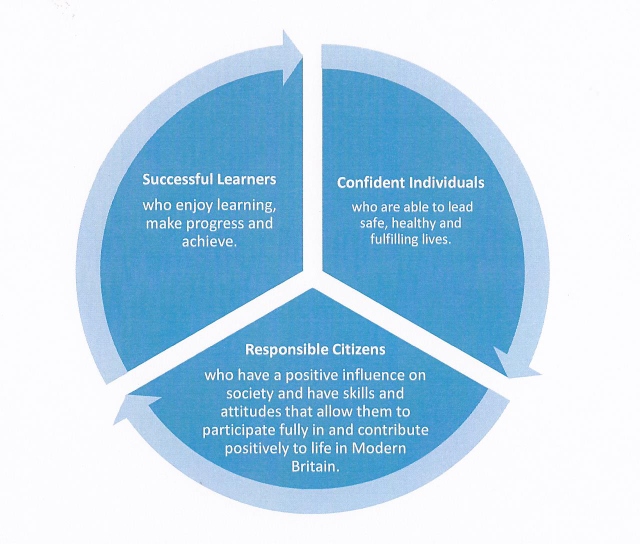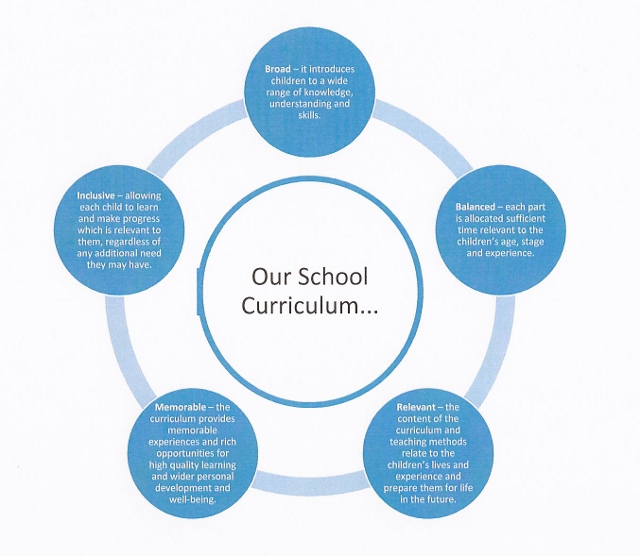Curriculum
Our curriculum is based around the National Curriculum 2014.
Overview
The national curriculum is a set of subjects and standards used by primary and secondary schools so children learn the same things. It covers what subjects are taught and the standards children should reach in each subject.
Follow this link to the Department of Education website.
Please use the links below to find out what our children will be taught.
Please expand the topics below for more information
Our Curriculum
At The Michael Syddall Cof E (Aided) Primary School, our curriculum is based upon shared aims which put our children at the heart of the curriculum, recognising their role as citizens of the world.
We aim for them to become:

The work which our children cover is supported by our curriculum principles, ensuring that what they experience is:

Art and Design
British Values - Preparation for an Appreciation of Life in Modern Britain
We agree with the Department for Education’s five part definition of British Values:
- Democracy
- The rule of law
- Individual liberty
- Mutual respect
- Tolerance of those of different faiths and beliefs
We believe it is incredibly important that these British Values permeate through every school. At Michael Syddall Primary School, you will encounter these values throughout our everyday school life. The British Values, along with our Christian Values and Primary Edge skills, act as a golden thread through our school. We believe that our Christian identity plays an important role in upholding British Values within our school community.
This document gives further examples of how we prepare our children for Life in Modern Britain – How we promote British Values
Business Studies
Computing
Information and Communication Technology is concerned with teaching our children the communication skills that will support them in the future. We have a dedicated ICT Suite as well as 64 learnpads which are used across the school in classrooms.
All our classrooms have interactive whiteboards. Our children follow a discreet ICT skills programme which allows them to develop the skills required to become confident with the Computing National Curriculum. The children also have the opportunity for a second lesson in the ICT Suite enabling them to apply their skills in other areas of the curriculum such as geography and history.
Design and Technology
Drama / Performing Arts
English
Our aim is to promote high standards of language and literacy by equipping pupils with a strong command of the spoken and written word, and to develop their love of literature through widespread reading for enjoyment. We believe that the skills in English: reading, writing and speaking and listening; provide the foundations for pupils’ achievement throughout the whole curriculum and all other areas of learning for now and the future.
At The Michael Syddall CofE School we deliver the National Curriculum for English through a text based approach, engaging children in stimulating books through which they can apply all of their skills, write for a purpose and where the characters become a part of the class!
Children develop their reading and comprehension skills through regular Guided Reading and by our home reading scheme; Oxford Reading Tree. When writing, we encourage neat presentation and correct letter formation with children being taught to use a cursive style of joined up writing when they are ready.
The Oxford Owl website has some helpful hints and tips for reading at home as well as free access to 250 ebooks.
https://www.oxfordowl.co.uk/for-home/reading-owl/reading
Foundation Stage
The Early Years Foundation Stage framework is provided for the children in our FS2 Class.
There are three Prime areas of learning and development:
- Personal, Social and Emotional Development
- Physical Development
- Communication and Language
There are also four Specific areas of learning and development:
- Literacy
- Mathematics
- Understanding the World
- Expressive Arts and Design
The Characteristics of Effective Learning, which are engagement, motivation and thinking, are encouraged in our children through the provision they are provided with and the adult interaction they experience.
Foundation Stage Profile
Each of the six areas of learning has its own set of ‘Early Learning Goals’ which determine what most children are expected to achieve by the end of the Reception class. Our Early Years curriculum is based on an understanding of the development of young children and insights into how they learn, whilst our planning takes into account the need for young children to be active learners, developing an awareness of the world through first hand experiences. It is based on the recognition that children learn best through play and active learning. Our children have access to both indoor and outdoor areas.
Current Planning…
Geography
Homework
We see learning at home as providing valuable support for our children which helps them to further extend their knowledge and understanding and allows parents and carers to be part of their child’s school work.
Our ‘Homework Policy’ outlines the expectations for each year group. Teachers communicate the tasks and dates that work is due back to school through each child’s homework file or book and through class newsletters. Information is also available on each class page on the website but if you are in doubt, please ask your child’s class teacher.
Click HERE for our ‘Homework Policy’
History
Maths
Maths is all around us in our daily lives such as calculating the shopping bill, shape, measurement and pattern, data presented in charts and graphs and of course, solving problems. Therefore it is essentially at the core of every child’s education. Mathematical development depends on becoming confident and competent in learning and using key skills.
At The Michael Syddall C of E School we teach Maths as a discrete subject daily from Y1 to Y6 in accordance with the National Curriculum. Teachers assess children’s starting points for each topic of maths before it is taught to ensure children learn the things that they need to in order to progress. We have a comprehensive calculation policy which outlines the stages children go through and will be taught when learning how to add, subtract, multiply and divide.
Click here to view the Calculation Policy
In Foundation Stage 2, maths is incorporated within the child’s day according to the Early Years Outcomes and Mathematical Development guidelines which includes number, shape/space and measures. In addition, wherever possible Maths is brought into other curriculum areas and can be addressed in most subjects in some way e.g. position and direction in P.E.; data handling in Literacy, Science, Geography; shape and pattern in Art; timelines in History; finance in social and global issues.
Modern Foreign Languages
Music
Personal ,Social, Health, & Citizenship Education (PSHCE)
Phonics teaching
We use Letters and Sounds as a guide to teaching phonics in our school. The learning of phonics and associated strategies are set out and we aim to teach them in a way which children find fun and engaging, giving them the skills to remember and apply what they have learnt when reading and writing.
Physical Education
Religious Education
In a diverse, multi-cultural and ever-changing world, it is vital we enable our pupils to hold balanced and informed conversations about religion and belief. At Michael Syddall we have 3 principal aims for the teaching and learning of RE. We want to educate, encourage and nurture our pupils to:
- Become knowledgeable about world faiths and views
- Develop their own religious views and opinions
- Be respectful and tolerant citizens
At Michael Syddall, Religious Education is highly valued as a core curriculum subject. The work is planned in accordance with the Religious Education Syllabus for the diocese of Leeds and York. Our study of Christianity is supported by the Understanding Christianity resource. In order to develop a balanced awareness of global perspective, elements of other major faiths are introduced and explored, as are secular and non-religious worldviews.